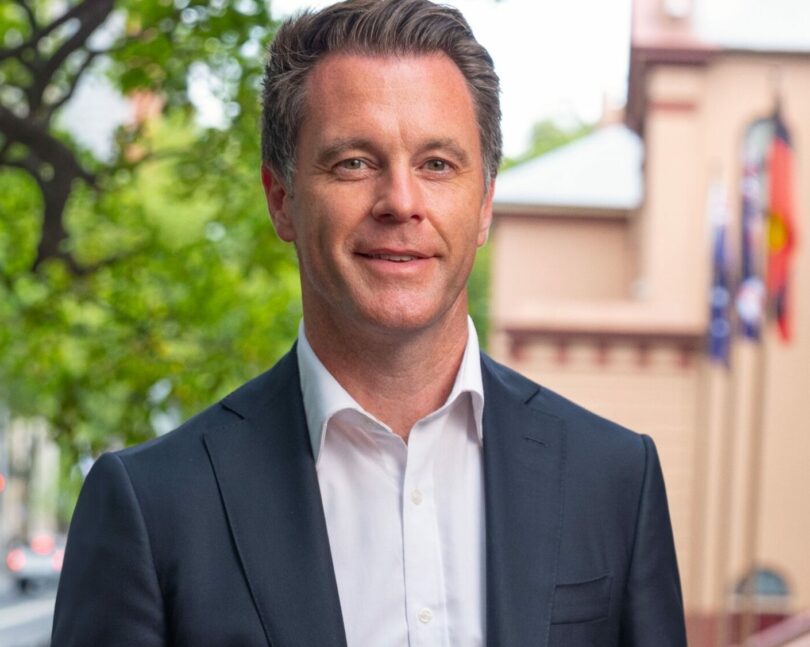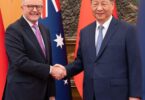CHRIS MINNS – SPEECH – ADDRESS TO THE NSW DRUG SUMMIT 2024 – SYDNEY
ADDRESS TO THE NSW DRUG SUMMIT 2024 INTERNATIONAL CONVENTION CENTRE, SYDNEY
WEDNESDAY, 4 DECEMBER 2024
Thank you so much John. And thank you to Uncle Brendan for that very warm welcome to country. We genuinely appreciate it. Thanks for your demonstration of the yidaki.
Thank you for keeping alive these ancient traditions, and thanks for letting all of us celebrate and be part of the world’s oldest continuing culture. It’s so important that you’re here, and we genuinely appreciate it. Thanks, Uncle Brendan.
I’d like to acknowledge the Gadigal people, the traditional owners of the land, and of course, recognise any Indigenous delegates who are here with us today as delegates at this drug summit.
Friends, when Bob Carr announced his original drug summit in 1999, he began his address with a sensible premise that:
“Action on drugs can only work if we have every part of the community working together.”
And in that spirit, can I welcome you all as leaders from across this state including my parliamentary colleagues, NSW Police, the many healthcare workers right across the state, drug and alcohol service providers and carers, individuals who have experienced drug addiction themselves and have come to bear witness to their story, and family members who have supported their loved ones through what are in many cases, a painful process.
Can I also pay a special tribute to our fantastic co-chairs, Carmel Tebbutt and John Brogden, we genuinely appreciate you being here.
When the Health Minister was looking for people to lead this process, not just here in Sydney, but in regional New South Wales, he looked for some very special qualities.
Firstly, and I think most importantly, they needed to be compassionate and caring people.
People who understood that human beings are flawed, that everybody makes mistakes, that everyone is redeemable and that everyone must be offered the benefit of hope in their journey.
We needed people who have worked in government, who have also put their money where their mouth is, on the frontline in leading community services.
Through their work with Lifeline and Odyssey House, John and Carmel were obvious candidates, but they didn’t have to do this and we genuinely appreciate that they’re here.
They speak with real credibility in this field. In fact, when the first drug summit’s main recommendations came before parliament, Carmel was the Minister for Community Services and John was the leader of the Liberal Party who allowed a conscience vote on the matter of a safe injecting room in King’s Cross.
When that vote came to the floor of Parliament, John voted in favour of that resolution. With that in mind, can I also welcome all the Liberal and National members who are here with us today at the summit.
To those opposition members, we appreciate that you’ve taken the time to join us, to hear from members in the community. We want to say to you that we want to work with you across party lines to find genuine answers here.
And of course, that goes to members of the cross bench, independents, minor parties, everyone who represents a constituent from the New South Wales Parliament who’s here with us today.
Because it doesn’t matter where you live or who you vote for, drugs have scarred every Australian community in some way.
In fact, as we heard in our regional forums, a lot of these issues are amplified in the bush and the regions where services are harder to access and come by.
The point of a summit like this is bringing people together.
Nothing worthwhile ever comes out of an echo chamber.
We want different perspectives. We want to hear people openly and honestly tell us their perspective, their lived experiences.
By definition, that means that not everyone is going to agree on every point demonstrated or represented at the summit, and that’s okay.
But at the start of this Sydney leg of the summit, I think it’s worth laying out some basic principles that should unite most of us, if not all of us.
The first is that when you look at our kids and when we think about the lives we want we want them to live, there’s not a single parent anywhere in the state who ever wish for their child to be caught up in drug addiction of any kind.
Secondly, as a government and as a community, as leaders at this summit, we’ve got a responsibility to stop that from happening wherever we can, either through prevention or when addiction does occur, by helping people back on their feet.
Thirdly and realistically, there is unfortunately no magical solution to this problem.
Drugs exist, a drugs will continue to exist after this summit has wrapped up.
That means our goal must be reducing the number of Australians whose lives have been destroyed or diminished.
And finally our goal is a recognition that society has not got there yet and more needs to be done.
In short, I think it means that we can do better.
At this summit, we share an ambition to do just that.
And this is not the first summit to be held on this topic.
Many may have been delegates at the original summit in 1999.
As a state, I think we should be proud of that moment where we were able to sit down as adults, confronting serious problems and finding real ways to reduce harm amongst vulnerable people.
If you look back and look at the history of that summit, if you track those debates at the time, they were just as controversial then as they’ve ever been.
But the reason it was able to succeed, despite those challenges, there was a relentless, practical focus on the problems at hand.
In the late 1990s, the state was dealing with the crippling heroin epidemic that was smashing communities right across the state. And delegates recognised that they had a responsibility to act.
As one commentary said afterwards, a commentary that was published in the Drug and Alcohol Review:
“The points of disagreement were the poles of zero tolerance and total legalisation. These extremes were rejected by the body of the summit.”
Instead, Bob Carr set a much more immediate test:
“To each proposal … [does] it make the drug problem better or worse in New South Wales, better or worse for the families of this State?”
It was that attitude that helped us change people’s lives through drug reform, which included for the first time recognising that drug related harm is a health issue.
Creating new diversion programs to shift people away from the criminal justice system and towards rehabilitation.
Expanding education programs in our schools.
And supporting the world’s first medically supervised injection centre in Kings Cross.
These were big changes, and they came out of a summit like this because delegates kept their eye, I think, on the main game.
They were focussed on workable policy and they came with an open mind and a sincere commitment to listen.
Many of them were big enough to admit that they changed their opinions as the conference went on, as the summit examined new evidence and different perspectives.
And I hope that people approach this summit in exactly the same spirit.
At different points in the next two days you will hear from people who were previously addicted to drugs, and through great inner strength and with the help of support services, managed to rebuild their lives.
You’ll hear from Ted Wheeler, the Mayor of Portland, who has been managing their experiment with decriminalisation in Oregon, including some of the challenges that come with it.
You’ll hear from experts who have dedicated their professional lives to harm reduction and community safety as well as academic research on these exact questions.
Now, some of these points of view you will agree with.
Some of them will clash with your own deeply held views and it must be said, lived experiences.
Because this is so pervasive, because it touches all parts of our community, people will come with different experiences, and we don’t mean to devalue any of them at this summit.
But I hope people remember, everyone comes to the table in good faith based on their own experience with a view to doing better.
Drugs are a health issue. They’re also a justice issue. They’re a police issue. They can be a child protection and social services issue. They are an education issue. They’re an issue for people that want a safe and sociable neighbourhood to live in.
The best hope for lasting change on any question, but particularly a vexed question like drug policy, is finding points where we agree and we can share a common ground.
So thank you again for putting your hand up and sharing your insights and passion with the summit.
I’d like to pay special tribute to all the brave people sharing their own experience with drug use over these two days.
I know there’s a lot of stigma still out there, but you are crucial voices in this conversation.
Addiction is an awful thing, but people who suffer should not be exiled from our community because life is littered with people who confronted their demons and turned their lives around.
And friends, the age of shame must end because shame has never helped anyone.
Instead we should be celebrating those people who have conquered a terrible affliction.
Delegates I won’t pretend that today is the culmination of drug policy in New South Wales.
Even in 1999, there were years between the summit itself, the recommendations that followed and then legislative change.
This summit isn’t the end point but it is a significant moment.
As representatives at this summit, you’ve got a chance to use the platform to protect vulnerable people. To build a healthier, happier, more humane society in New South Wales, and I genuinely appreciate your attendance here today and tomorrow. Thank you.







